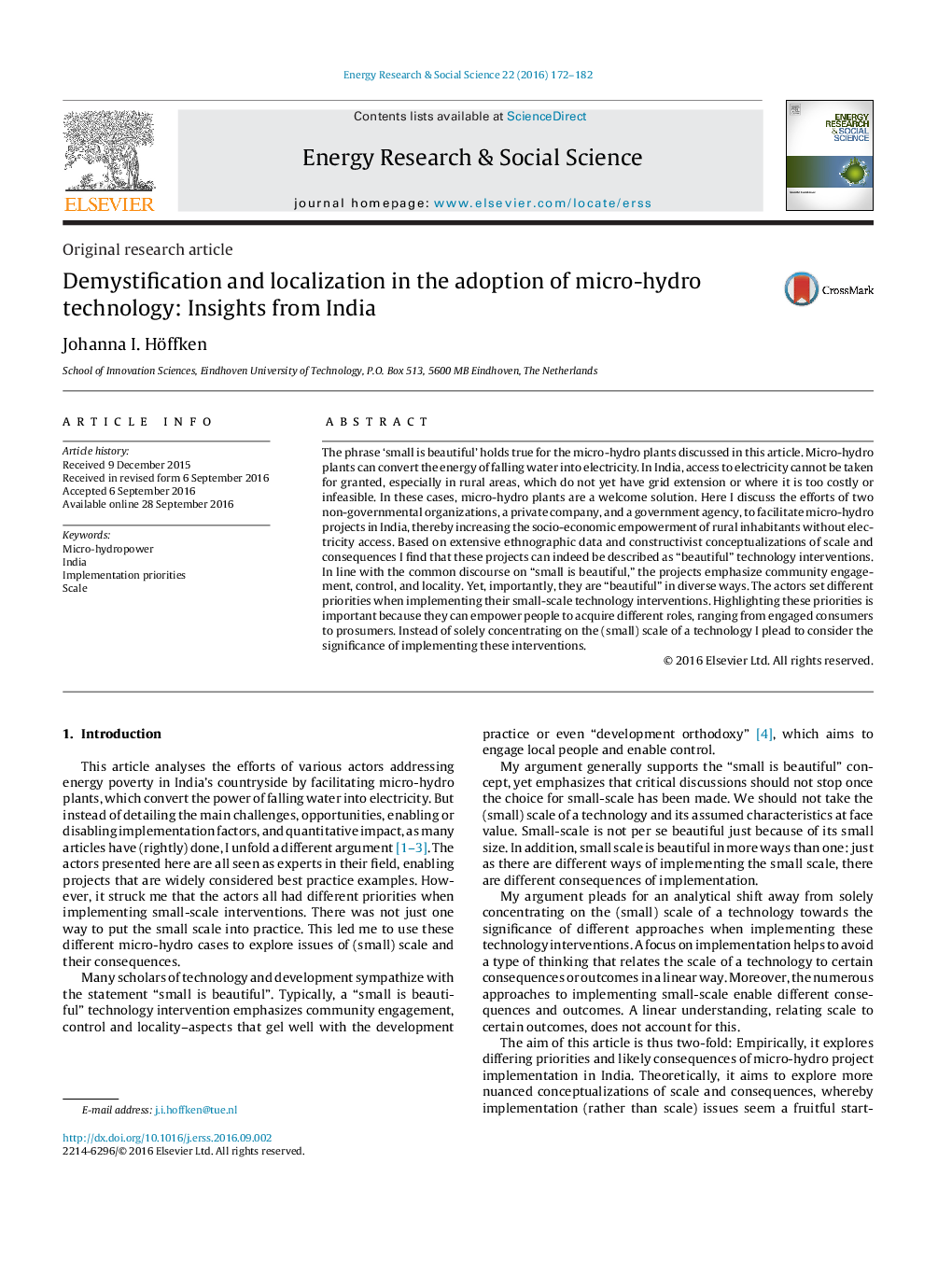| Article ID | Journal | Published Year | Pages | File Type |
|---|---|---|---|---|
| 6464154 | Energy Research & Social Science | 2016 | 11 Pages |
The phrase 'small is beautiful' holds true for the micro-hydro plants discussed in this article. Micro-hydro plants can convert the energy of falling water into electricity. In India, access to electricity cannot be taken for granted, especially in rural areas, which do not yet have grid extension or where it is too costly or infeasible. In these cases, micro-hydro plants are a welcome solution. Here I discuss the efforts of two non-governmental organizations, a private company, and a government agency, to facilitate micro-hydro projects in India, thereby increasing the socio-economic empowerment of rural inhabitants without electricity access. Based on extensive ethnographic data and constructivist conceptualizations of scale and consequences I find that these projects can indeed be described as “beautiful” technology interventions. In line with the common discourse on “small is beautiful,” the projects emphasize community engagement, control, and locality. Yet, importantly, they are “beautiful” in diverse ways. The actors set different priorities when implementing their small-scale technology interventions. Highlighting these priorities is important because they can empower people to acquire different roles, ranging from engaged consumers to prosumers. Instead of solely concentrating on the (small) scale of a technology I plead to consider the significance of implementing these interventions.
